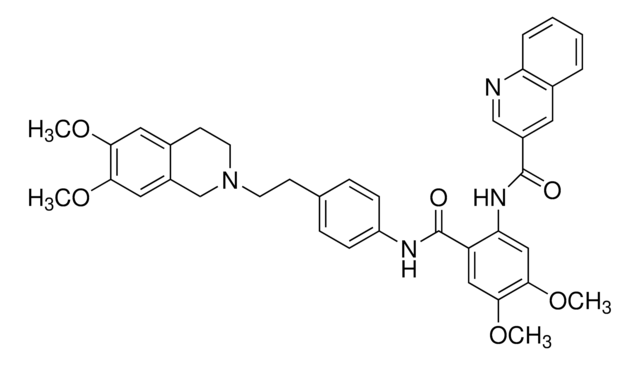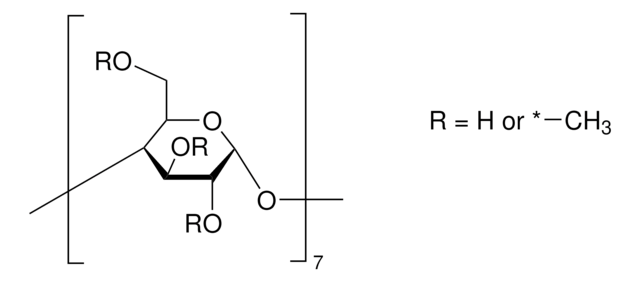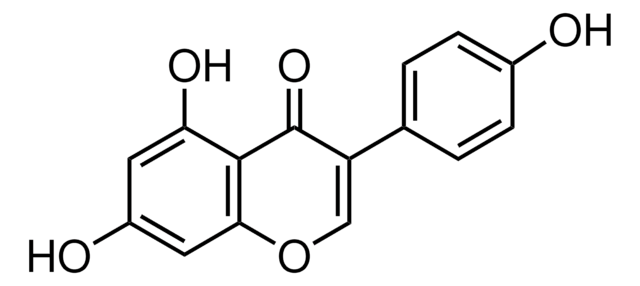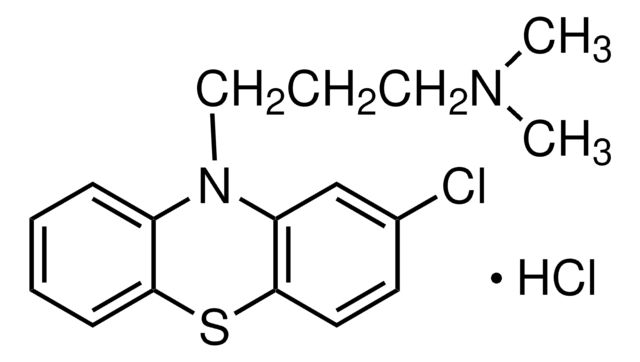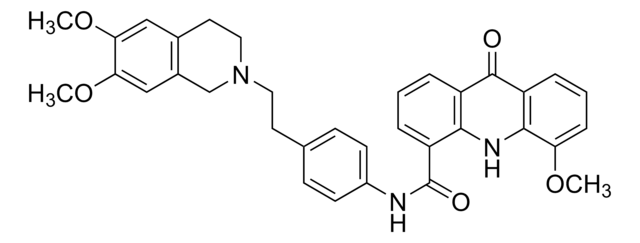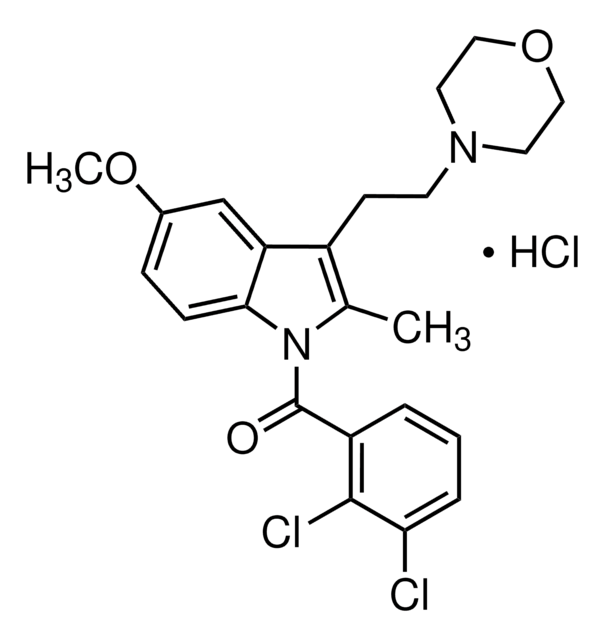SML3678
ML-SI3
≥98% (HPLC)
Synonym(s):
N-[2-[4-(2-Methoxyphenyl)-1-piperazinyl]cyclohexyl]benzenesulfonamide
Sign Into View Organizational & Contract Pricing
All Photos(1)
About This Item
Empirical Formula (Hill Notation):
C23H31N3O3S
CAS Number:
Molecular Weight:
429.58
MDL number:
UNSPSC Code:
12352200
NACRES:
NA.77
Recommended Products
Quality Level
Assay
≥98% (HPLC)
form
powder
color
white to beige
solubility
DMSO: 2 mg/mL, clear
storage temp.
-10 to -25°C
Biochem/physiol Actions
ML-SI3 is a 4-diastereomer racemate (2 cis and 2 trans isomers) with a cation channel TRPML1-blocking (IC50 = 3.1 μM/trans, 18.5 μM/cis against 5 μM ML-SA1-induced cellular calcium response) and TRPML2-activating activity (EC50 = 3.3 μM/trans, 9.4 μM/cis), while exhibiting much weaker TRPML3 potency (EC50 = 28.5 μM/trans, IC50 = 29.0 μM/cis). ML-SI3 is shown to compete against ML-SA1 for binding the same TRPML1 hydrophobic cavity. Comparing with ML-SI1 (GW405833), ML-SI3 is more potent and not agonist-dependent, effectively antagonizing against TRPML1 activation by both MK6-83 and ML-SA1.
Storage Class Code
11 - Combustible Solids
WGK
WGK 3
Flash Point(F)
Not applicable
Flash Point(C)
Not applicable
Certificates of Analysis (COA)
Search for Certificates of Analysis (COA) by entering the products Lot/Batch Number. Lot and Batch Numbers can be found on a product’s label following the words ‘Lot’ or ‘Batch’.
Already Own This Product?
Find documentation for the products that you have recently purchased in the Document Library.
Philip Schmiege et al.
Structure (London, England : 1993), 29(11), 1295-1302 (2021-06-26)
Transient receptor potential mucolipin 1 (TRPML1) regulates lysosomal calcium signaling, lipid trafficking, and autophagy-related processes. This channel is regulated by phosphoinositides and the low pH environment of the lysosome, maintaining calcium levels essential for proper lysosomal function. Recently, several small
Wuyang Wang et al.
Proceedings of the National Academy of Sciences of the United States of America, 112(11), E1373-E1381 (2015-03-04)
Upon nutrient starvation, autophagy digests unwanted cellular components to generate catabolites that are required for housekeeping biosynthesis processes. A complete execution of autophagy demands an enhancement in lysosome function and biogenesis to match the increase in autophagosome formation. Here, we
Our team of scientists has experience in all areas of research including Life Science, Material Science, Chemical Synthesis, Chromatography, Analytical and many others.
Contact Technical Service